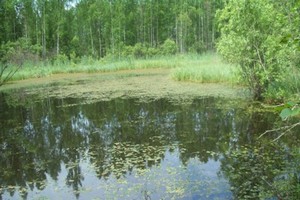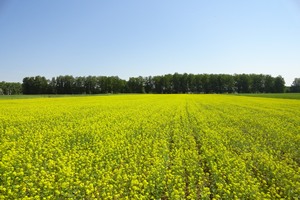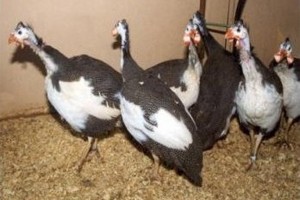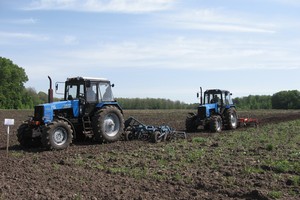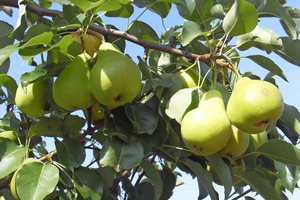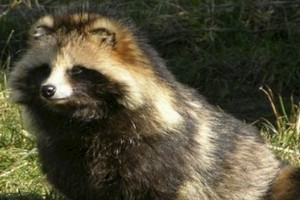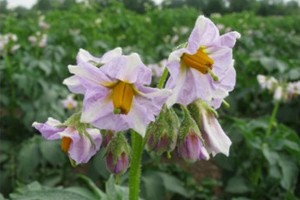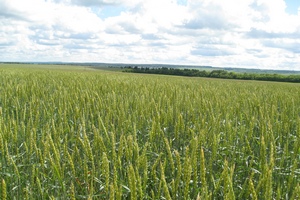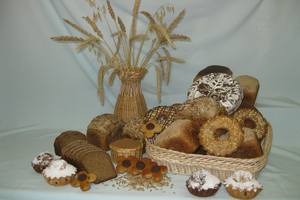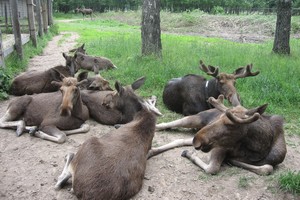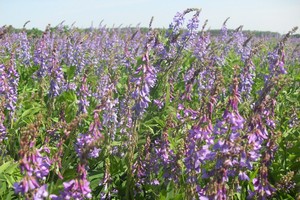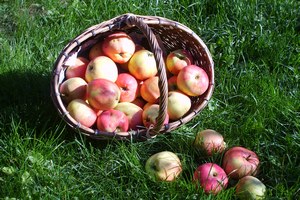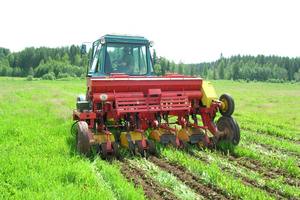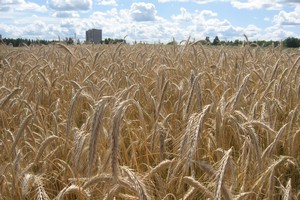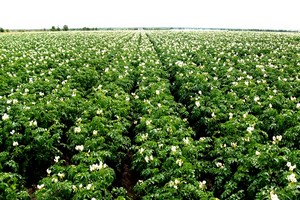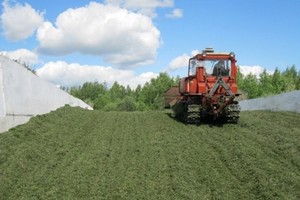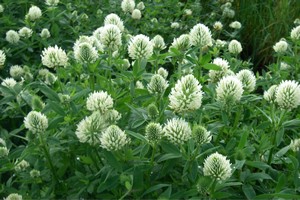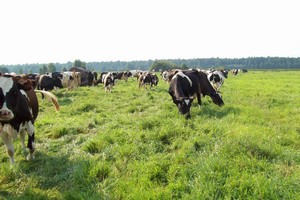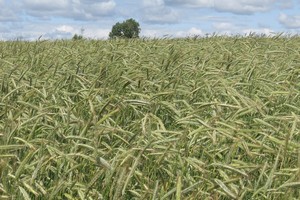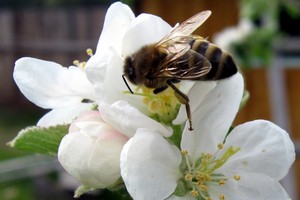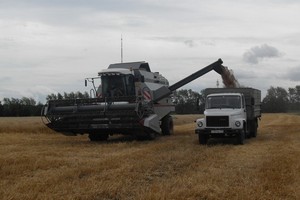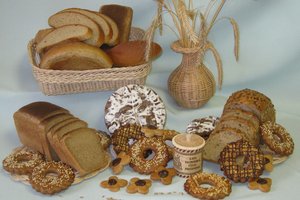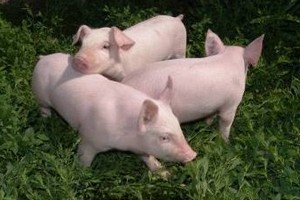Influence of mineral fertilizers on productivity and grain quality in spring wheat Svecha
Pages: 35-40.
Abashev V.D., DSc in agriculture,
Popov F.A., PhD in agriculture,
Noskova E.N., PhD in agriculture,
Zhuk S.N., associate researcher
North-East Agricultural Research Institute, Kirov, Russia
E-mail: niish-sv@mail.ru
Results of researches in long-time stationary experiment on sod-podzolic middle clay soil formed on eluvia of Perm clays are presented in the article. Spring wheat Svecha was cultivated on a layer of clover of first year of use. Scheme of the experiment includes 54 variants. A range of fertilizers doses varied from 30 up to 150 kg of acting matter of nitrogen, phosphorus, and potassium. When doses of fertilizers increased productivity of spring wheat increased too; however, addition of yield decreased at each subsequent dose. Grain productivity of spring wheat Svecha was defined basically by application of nitric and phosphoric fertilizers and to a lesser degree – by potash. The greatest productivity is received at entering of full mineral fertilizer dose N60Р60К60 which has provided productivity of 3.27 t/ha that is 1.7 times high than without fertilizers. At this rate wheat production is most profitable at self-recoupment 3509 rubles per ton of grain. The greatest recoupment of 1 kg of fertilizers' acting matter by the basic production is received in variants with low doses of nitric and phosphoric fertilizers: N60 – 13.7 kg, Р60 – 11.7 kg, N60Р60 –10.8 kg of grain; the least one – of potash fertilizers: К60 – 3.0, К120 – 2.7 kg. Each increase in fertilizers doses led to decrease in a recoupment of grain of spring wheat; in a variant with the maximum dose N150Р150К150 – up to 2.9 kg. The size of a recoupment of fertilizers with grain is defined also by conditions of humidifying of the growing season. The least recoupment is noted in droughty 2016. Test weight of grain of spring wheat depended mainly on weather conditions of growing season and harvesting period. Input of mineral fertilizers does not influence on test weight. Bread from spring wheat flour has sufficient quality which does not governed by dozes of fertilizers.
Keywords: spring wheat, productivity, sod-podzolic soil, fertilizers, recoupment of fertilizers by grain, 1000 grain weight, test weight
References
1. Pasynkov A.V. e.a. Izmenenie agrokhimicheskikh pokazateley dernovo-podzolistoy pochvy i produktivnost' sevooborota pri dlitel'nom primenenii udobreniy. [Change in agrochemical parameters of sod-podzolic soil and productivity of crop rotation at long application of fertilizers]. Rezul'taty dlitel'nykh issledovaniy v sisteme Geoseti opytov s udobreniyami RF. [Results of long-time researches in system of the Geonetwork of experiments with fertilizers of the Russian Federation. Collection of articles]. Iss. 2. Moscow: VNIIA, 2012. pp. 267-288.
2. Pestryakov A.M. Deystvie razlichnykh doz mineral'nykh udobreniy na produktivnost' zernovykh na temno-seroy lesnoy pochve. [Action of various doses of mineral fertilizers on productivity of cereals on dark grey wood soil]. Effektivnost' primeneniya sredstv khimizatsii v sovremennykh tekhnologiyakh vozdelyvaniya s.-kh. kul'tur: Sb. trudov. [Efficiency of application of chemicalization means in modern technologies of cultivation of agricultural crops. Collection of articles]. Moscow: VNIIA, 2012. pp. 158-159.
3. Abashev V.D., Svetlakova E.V. Vliyanie mineral'nykh udobreniy na urozhaynost' kul'tur zernotravyanogo sevooborota. [Influence of mineral fertilizers on productivity of crops of grain-grass crop rotation]. Agrarnaya nauka Evro-Severo-Vostoka. 2015. no. 2(45). pp. 37-43.
4. Olenin O.A., Noskova E.N., Popov F.A. Problemy biologizatsii pri vozdelyvanii yarovoy pshenitsy na raznykh tipakh pochv. [Problems of biologization at spring wheat cultivation at different soil types]. Dostizheniya nauki i tekhniki APK. 2016. no. 2. pp. 41-45.
5. Vozdelyvanie yarovoy myagkoy pshenitsy v Kirovskoy oblasti: metod. rek. [Cultivation of spring soft wheat in Kirov region: methodical recommendations]. Kirov: NIISKh Severo-Vostoka, 2016. 56 p.
6. Maslovskiy V.V. Agrobiologicheskie osnovy povysheniya kachestva zerna yarovoy pshenitsy pri formirovanii urozhaynosti na serykh lesnykh pochvakh Volgo-Vyatskogo regiona Nechernozemnoy zony Rossii: avtoref. dis. d-ra s.-kh. nauk. [Agro-biological bases of improvement of spring wheat grain quality at productivity formation on grey wood soils of Volgo-Vyatka region of the Non-Chernozem zone of Russia: author's abstract of DSc Thesis]. Saint-Petersburg, 1992. 48 p.
7. Abashev V.D., Pupov N.I. Podgotovka pochvy pod yarovuyu pshenitsu. [Soil preparation for spring wheat]. Zernovoe khozyaystvo. 1984. no.2. pp. 23-24.
8. Praktikum po agrokhimii: uch. pos. 2-e izd., pererab. i dop. Pod red. akademika RASKhN V.G. Mineeva. [A practical works on agrochemistry. Ed. V.G. Mineev]. Moscow: Izd-vo MGU, 2001. 689 p.
9. Tsarenko V.P. Otsenka sovremennogo sostoyaniya i perspektivy razvitiya agrokhimicheskogo kompleksa Rossii. [Estimation of a current state and prospect of development of an agrochemical complex of Russia]. Izvestiya Sankt-Peterburgskogo gosudarstvennogo agrarnogo universiteta. 2008. no.9. pp.9-13.
10. Kodanev I.M. Agrotekhnicheskie priemy povysheniya kachestva zerna. [Agrotechnical receptions for improvement of grain quality]. Gor'ky, 1981. 47 p.
11. Zavalin A.A., Pasynkov A.V. Azotnoe pitanie i prognoz kachestva zernovykh kul'tur. [Nitric nutrition and the forecast of quality of grain crops]. Moscow: Izd-vo VNIIA, 2007. 208 p.
